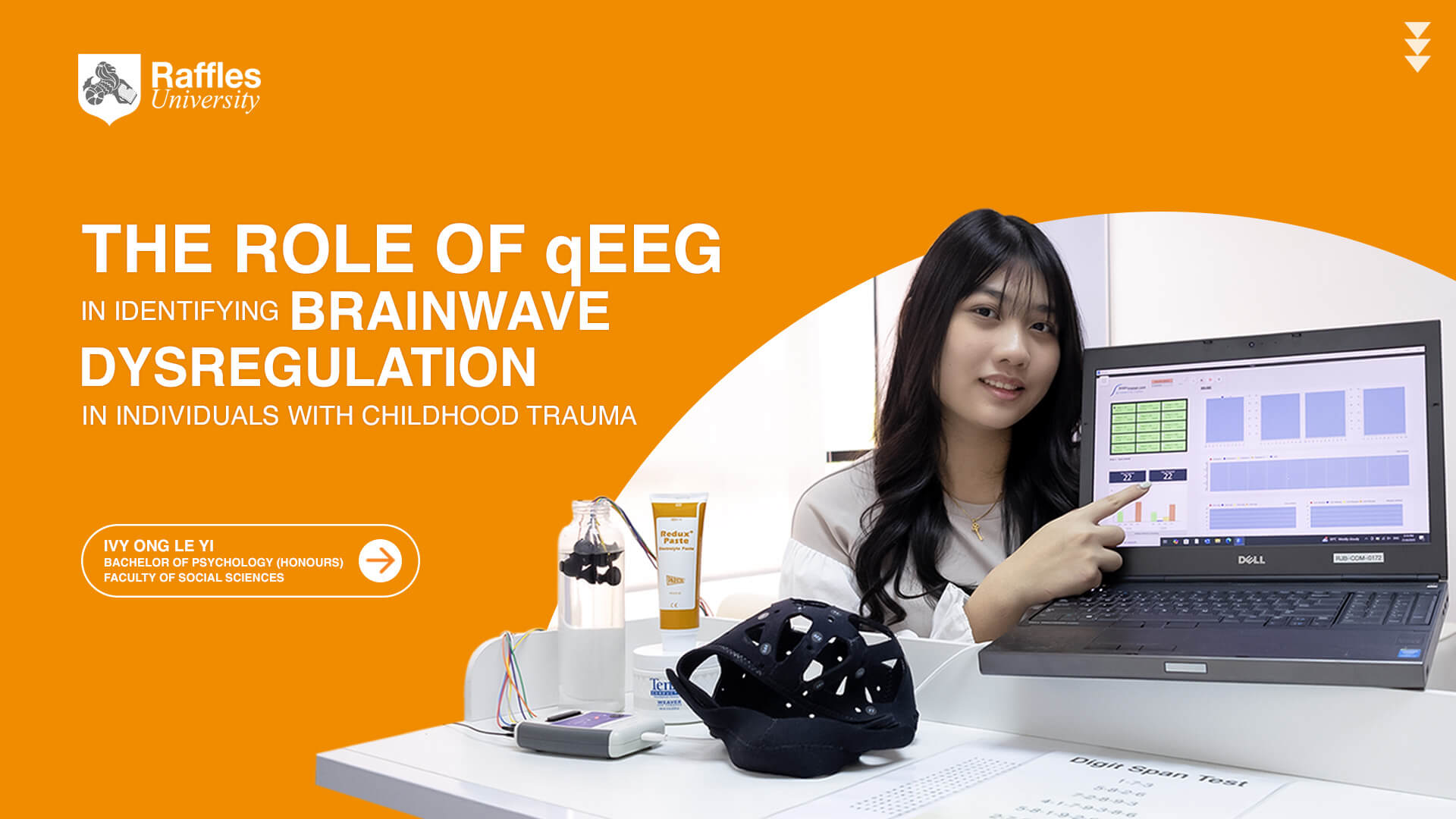RU STUDENT
BRAINWAVE MAPPING

BRAINWAVE MAPPING: A New Step in Psychological Wellness
What is qEEG?
qEEG is a non invasive method of recording brain activity. By analysing brainwave patterns, it creates detailed maps that show how different regions of the brain are functioning. These insights can help identify areas of dysregulation, making qEEG a valuable tool in studying:
- Trauma and stress responses
- Cognitive performance
- Mood and anxiety regulation
- Attention and focus

Student Research in Action
qEEG Services at RUPC
The Raffles University Psychological Centre (RUPC) is preparing to introduce qEEG assessments as part of its services. With this addition, the centre will provide the community with access to advanced brain mapping technology, supporting both research and mental wellness.
The service will be conducted in a professional, shielded lab to ensure accuracy and participant comfort. Clients will receive clear explanations of their results and guidance on how these insights can support their mental health journey.
The integration of qEEG reflects how the 社会科学系 connects education with practice. Students in the 心理学学士(荣誉学位) programme gain direct exposure to advanced research tools, while the community benefits from services informed by academic expertise.
This synergy between student research, faculty guidance and community service ensures that Raffles University remains at the forefront of psychological innovation in Malaysia.
With the launch of qEEG at RUPC, we take an important step toward bridging science, education, and psychological care. As Raffles University continues to nurture the next generation of psychologists while contributing to the well being of the community.
